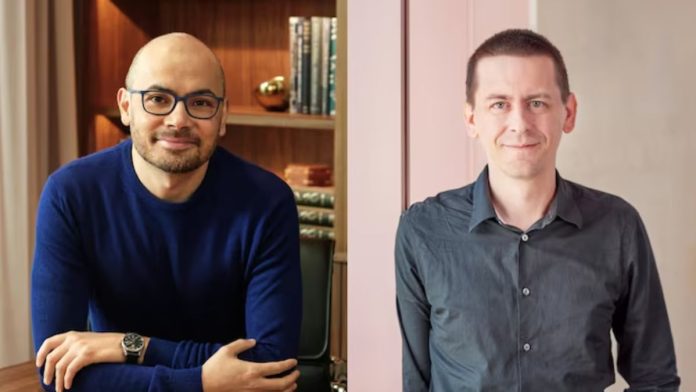In a stunning testament to the role of artificial intelligence in advancing science, Google’s influence loomed large at the 2024 Nobel Prize ceremony. Geoffrey Hinton, renowned for his groundbreaking work in machine learning, was awarded the Nobel Prize in Physics, while Demis Hassabis and John Jumper from Google DeepMind claimed the Nobel Prize in Chemistry for their development of the AlphaFold2 AI model.
This trio, who have deep connections to Google, now stand as a testament to the company’s pivotal role in shaping the future of AI and science. Together, their achievements represent a seismic shift in how artificial intelligence can accelerate discoveries in biology, medicine, and beyond.
Demis Hassabis and John Jumper: Revolutionizing Protein Structure Prediction
The Royal Swedish Academy of Sciences awarded Demis Hassabis and John M. Jumper the Nobel Prize in Chemistry “for protein structure prediction.” Their remarkable achievement is the result of years of work at Google DeepMind, where they developed AlphaFold2, an advanced AI system that cracked one of biology’s greatest mysteries—accurately predicting the 3D structures of proteins.
AlphaFold2 has had a transformative impact on the field of biochemistry, enabling scientists to understand proteins’ complex structures with unparalleled precision. The AI model’s ability to predict nearly all known protein structures has revolutionized drug discovery and disease research, providing critical insights into life’s molecular building blocks.
Demis Hassabis, CEO of Google DeepMind, expressed his deep gratitude following the announcement. “Receiving the Nobel Prize is the honour of a lifetime. I’ve dedicated my career to advancing AI because of its unparalleled potential to improve the lives of billions of people. AlphaFold has already been used by more than two million researchers to advance critical work, from enzyme design to drug discovery,” Hassabis said.
John Jumper, a senior research scientist at DeepMind, emphasized the broader implications of AlphaFold2 for the scientific community. “It is a key demonstration that AI will make science faster and ultimately help us understand disease and develop therapeutics,” Jumper noted, highlighting the far-reaching potential of AI in solving some of the world’s most complex problems.
Geoffrey Hinton: The Architect of Modern AI
Just a day before the Chemistry Prize was announced, Geoffrey Hinton received the 2024 Nobel Prize in Physics for his pioneering work on neural networks and their applications in machine learning. Known as the “godfather of AI,” Hinton’s contributions have been foundational in the development of deep learning technologies now ubiquitous in AI applications.
Hinton, who worked at Google Brain from 2013 to 2023, played a critical role in advancing AI technologies that are now central to many of Google’s services. His work on backpropagation algorithms laid the groundwork for the modern AI revolution, enabling computers to learn from data in ways that were previously impossible.
With this recognition, Hinton joins the ranks of Nobel laureates who have transformed not only their fields but also industries, with his work having broad implications in everything from healthcare to finance and even everyday technologies like Google’s search engine and voice assistants.
Google DeepMind: The Vanguard of AI Innovation
The Nobel recognition of Demis Hassabis, John Jumper, and Geoffrey Hinton underscores Google’s leadership in AI research. Google DeepMind, in particular, has emerged as a hub for transformative AI-driven breakthroughs. AlphaFold2, with its ability to predict protein structures, is just one of the many examples of how AI can accelerate scientific discovery and innovation.
Since its development in 2020, AlphaFold2 has predicted the structures of nearly 200 million proteins, a feat that has revolutionized biological research. Scientists worldwide are now leveraging this technology to push the boundaries of what is possible in fields like drug development, biotechnology, and molecular biology.
The Nobel Prize committee noted that “Demis Hassabis and John Jumper’s development of AlphaFold2 has solved a 50-year-old problem in biology—predicting protein structures with accuracy.” Their achievement marks a pivotal moment in the intersection of AI and life sciences.
The Future of AI and Scientific Discovery
With the Nobel accolades, Google’s commitment to advancing AI technologies has been solidified. The success of figures like Hinton, Hassabis, and Jumper serves as a beacon for what AI can achieve when applied to complex scientific problems.
In a post-award statement, Demis Hassabis reflected on the broader implications of AI for humanity. “If we can build AI in the right way, it could be the ultimate tool to help scientists explore the universe around us,” Hassabis said. His words echo a growing belief that AI will not only transform science but also humanity’s understanding of the natural world.
As these laureates are celebrated for their contributions to AI and science, their work also shines a light on Google’s pioneering efforts in this space. From revolutionizing protein research with AlphaFold2 to advancing neural networks with Google Brain, Google continues to be at the forefront of shaping the future of AI-driven scientific discovery.
Must Read: ‘Grief Is The Price To Pay’: Shantanu Naidu Says Goodbye to Mentor Ratan Tata






